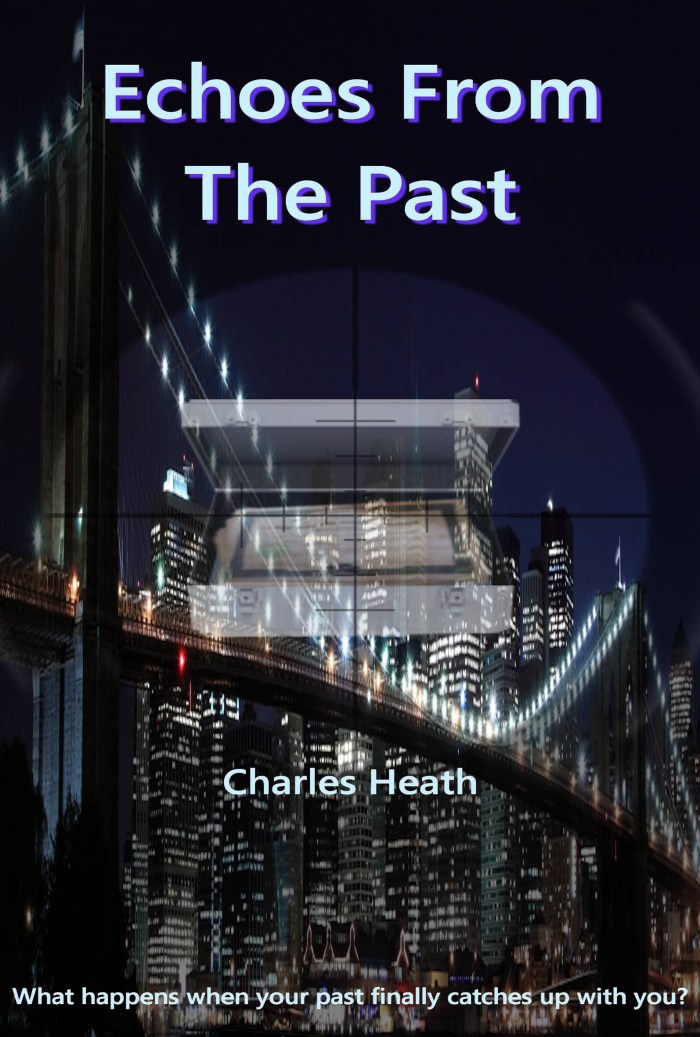Day 48 – Writing exercise
…
I knew the moment I opened my eyes that this day was going to be different.
My life had begun to sink into a rut where everyone and everything were the same. In fact, it was so predictable that I could recite every word spoken to me and in response for the first half hour.
So monotonous, I didn’t want to go to work today, any day, any more, ever. Except I had to pay the rent, the bills, and eat.
How would life have been so much easier if I were a robot?
Except…
When I turned over, ready to close my eyes and forget the alarm had gone off, I saw the one thing that changed my mind in an instant.
Beth, short for Elizabeth, not Liz or Lizzy or Bethany.
The girl I had seen at work, asked about, told she was unavailable or looking for friends like me, and gave up any hope of even saying hello.
Until last night, when I was holding open the door as the masses exited, and she was last in the queue. She thanked me, the only one, and I blushed. Yes, the introvert got tongue-tied.
She asked me if I was going her way, which I was, and we walked.
And talked, and talked, then went for a drink, had dinner, and no, I had no idea how she finished up next to me.
It appeared she was in the same group I was in, the assistant to the assistant, the gopher, doing odd jobs and worse for people who didn’t appreciate us, a stepping stone to something better, the bottom rung of the ladder to a career.
We had a lot in common.
We both had ambitions, and these were slowly being eroded by unhelpful, demeaning, and unappreciative superiors.
Now, in the cold, hard light of day, all those plans, everything we said we would do, all those strategies to put our superiors in their place, seemed a million miles away.
Except she was still there.
And I will be honest, I had no idea how or why she was. We did have a little too much to drink, something I never did on a workday, and something she said she didn’t do ever.
And I hoped nothing happened, anything that would ruin a fledgling relationship that had possibilities.
When I tried to edge myself out of the bed, she woke, surprised, but with a smile.
“Sorry.”
“For what?”
“Anything I might have said or done that I can’t remember.”
“Good thing then that I do. Did I forget to tell you that alcohol doesn’t really affect me, other than in the moment, but it doesn’t affect my judgment. You were silly, not stupid, and I thought it wise to tuck you in and make sure you were OK. Now, come back and rest for a few more minutes. I gave you my mother’s hangover cure last night, so you will be fine.”
I slid back under the covers.
“Thank you. Normally, after that much wine, I would be a mess.” I had to admit I felt almost normal except for a slight ache behind my eyes, perhaps from not enough sleep.
“You’re welcome. It was interesting to discover you hate the management group as much as I do.”
“Not so much hate as to wonder how they actually made the group. They certainly have no people skills, but at least they treat everyone the same.”
“Which is wrong?”
“Well, at the orientation, they did tell us what to expect.” Not quite, we were told that we needed to learn quickly during the internship, and that sometimes, in high-pressure situations, we might find ourselves in trouble, especially if we had the training and forgot the lessons.
That was the sticking point. Most of those in management failed to complete our training, usually because of time constraints or simply their lack of interest in ‘molly coddling’ as one called it.
“But there are ways of doing it, and ways of not doing it. Perhaps we need to remind them. Subtly.”
“Is there such a thing?”
“You said that there was last night. You have so many ideas, and equally no idea how to make them happen. I’ve been thinking about it, and I have a plan.”
That morning transcended any I’d had in a lifetime and taught me one very valuable lesson. I needed to be sober and aware at all times if I wanted to impress any woman.
I knew she was just being kind to me, even though I felt like she might like me as more than just a colleague, but I would have to impress her if I wanted any sort of chance.
It was odd that I hadn’t thought about her or any of the others in that way; such was the necessity to keep your mind on the job and keep ahead of the game. There were a dozen of us, and we were all competing for three positions, and it was coming to the end of the trial period.
No one had an edge. Trying to grovel didn’t work, trying to be better than the others didn’t work, and they let you make mistakes without telling you, which, in front of the group, wasn’t exactly the best way of getting any of us to stay.
Perhaps they didn’t. Perhaps those they didn’t harass out of the job were the sort of lackeys they wanted.
And apparently, I had told her that I’d been spending a lot of my spare time studying the whole financial structure of the organisation and found that our managers had been taking the wrong path
Both of us had been working on the background papers that were to be presented to the board members, and because of that, we would be allowed to sit in.
She had a plan, and when she stepped through it, I agreed with her that it might work. It just depended on one particular board member, the lone woman, Sylvia. Beth had worked with her for a week when she requested an intern from HR, one of the girls.
And unlike management, Sylvia was interested in helping the interns and taught them some valuable lessons, and this, along with the corporate knowledge we had, was either going to win us some points or get us fired. Either way, we both agreed it was better than keeping the status quo and would be worth it, one way or the other.
As usual, the two managers we worked for, each in a different department, were charged with conducting the presentation.
But this morning, my manager hadn’t arrived in time for the meeting, and it was handed to Beth. He was annoyed, and those last few minutes before it was due, Beth arrived with the morning coffee run, scribbled on a piece of paper, while I distributed the papers, including those I had written that showed the true start of the business and the recommendations to put the company on a more profitable trajectory.
My speciality at uni was rescuing poor-performing companies using alternative strategies, and I had tried to get this across to the current management group, but they had consistently ignored it. It was no secret that the current strategy was not working, and the meeting with the board was to tell them how to overcome this.
What did an intern know?
Before it started, Beth handed out the morning coffee and cakes; what the presenters hoped would put the board members in a better frame of mind.
It did not.
He had got the orders wrong, yet another example of not listening properly, and the unthinkable happened. He told Beth to go and sort the mess out.
Sylvia put her hand up and asked who was responsible for writing down the orders, stating plainly that what she had was not what she ordered, and that the order had been taken by the manager.
Therefore, she said the manager should sort it out.
And since he had a perfectly adequate team of interns whom the presenters no doubt had gone through the presentation with, as was required as part of the training standards of the organisation, the two interns could make the presentation in his place.
She then told him to leave.
The door closed, Beth made a précis of the manager’s presentation and then said that there was an alternative strategy available, one that was hot off the press and would be delivered by the person she described as a top of the class strategist in reviving poorly performing companies.
She then handed the floor to me, and I went through the basics and then the specifics, closing just as the manager returned.
Over coffee, four board members grilled him over the merits of the two strategies, one of course he knew about and had discounted and now had to admit was the more successful path.
If looks could kill, there would have been two dead interns.
Meeting over, we were dismissed. The manager was kept in the room while the more senior members of management were summoned to explain how interns could possibly come up with a better strategy and why the current management team was still pursuing outdated and frankly incomprehensible methodologies.
Or at least that’s what we were told later. Both Beth and I had decided that we would pack up and leave. Even if we were right about our strategy, it was still the wrong way to go about it. Board members come and go, so currying favour with them was not a successful way to get a position in the company because they couldn’t trust you to do what you were asked to do.
We both knew that. Getting a job was on merit, but when the company’s hiring staff were not apprised, well, perhaps the company was not worth working for.
That inevitable call came from HR. It was from the same man who had conducted our interviews, the same man who basically told us we were worthless until we were forty.
It was a novel way of engendering loyalty and selling the company as a place worth working. But that year was a difficult one, and jobs were hard to find, especially in one as prestigious to make a splash on our resumes.
We were both in the breakout area because we didn’t have a permanent office. That would have come if we were selected to stay.
I put my phone on speaker.
“You two do realise that what you did, how you did it, was not the right way. There are procedures and a hierarchy, and they should be followed.”
Beth was more blunt than I was, especially in dealing with her manager and purported mentor. She said, “A hierarchy may work in a proper environment, but this isn’t where there is one. The ideas we presented were communicated several times to the appropriate people, and they were ignored.”
“That is regrettable, but our procedures are there for a reason.”
“So the current muddle management can steal the interns’ ideas and pass them off as their own. How are you supposed to get a position here if they deliberately stifle you?”
Good point. I think most of us just accepted that was the way it is in the corporate jungle.
“I will agree that presenting something of a delicate. But there is always a better way, and the two of you failed. Regrettably, your internships are cancelled, and you will be escorted from the building by security.”
Conversation over.
Beth shrugged. “No surprises there. No surprise either when we read about the company seeking a Chapter 17 bailout in a few weeks.”
That comment coincided with the arrival of two security guards. One would have been sufficient.
Of the two, one was the genial old man who took the time each morning to greet each of the employees by name, a remarkable feature given how many worked there.
What was more remarkable was the disdain and plain rudeness with which most of the staff treated him. He shook his head.
“If I were to make a bet on you two, it would be that you would be the first to show initiative and then the first to be shown the door.”
He was not wrong in our case. “You could have cleaned up.”
“I did, but not in the manner you would expect.” He didn’t tell us why, but there was a wry grin and an interesting expression on Beth’s face. Perhaps she knew. I’d ask later.”
On the ground floor, we gave back our pass keys. We had to sign an NDA, which was normal. Then, after the formalities were done, I could see Sylvia come out of the elevator lobby and head over towards us.
Beth put her hand on my arm, a sign we should wait.
She saw the old man take off his cap and smiled, “It’s been a while, Miss Sylvia.”
“Too long, Archie. Everyone fine?”
“Fine enough. Yours?”
“Spread all over the country. Can’t tie them down anymore.”
“No. Kids always seem to have a sense of adventure these days. You take care, Archie.”
She turned her attention to us. “You two should know better, but then if you did, you wouldn’t have been here. But, on the other hand, I’m glad you were. As you may or may not know, I am an investor, mostly silent, and sometimes the holdings in shares get me a seat on the board. Until this morning, I was going to sell those shares. That presentation changed my mind. And I heard what happened to both of you. It’s not surprising this company is completely off the rails. Are you two looking for a job? Of course you are. Come and work for me. Both of you. I know a team when I see one. Your first job, clean out the baggage and get this place back on track. When I see my shares for ten times what they’re worth now, you two will get a very handsome bonus. Do you need time to think about it?”
Beth looked at me, and I nodded.
“No. Were in. When do we start?”
“Now.” Sylvia handed her a card. “That’s the office I keep. Annabel knows you’re coming. The paperwork will be there for your employment and your first assignment. Welcome aboard.”
A handshake each, and she was gone.
I was shocked at how quickly your life could change. My mother always said in troubled times that when one door closes, another one opens.
How true.
Then I saw Beth’s look of anguish. “You do want to work with me, don’t you?”
I smiled. “Of course, never been more certain of anything.” I held out my hand, and she took it in hers. “That, and whatever may follow.”
…
© Charles Heath 2026







